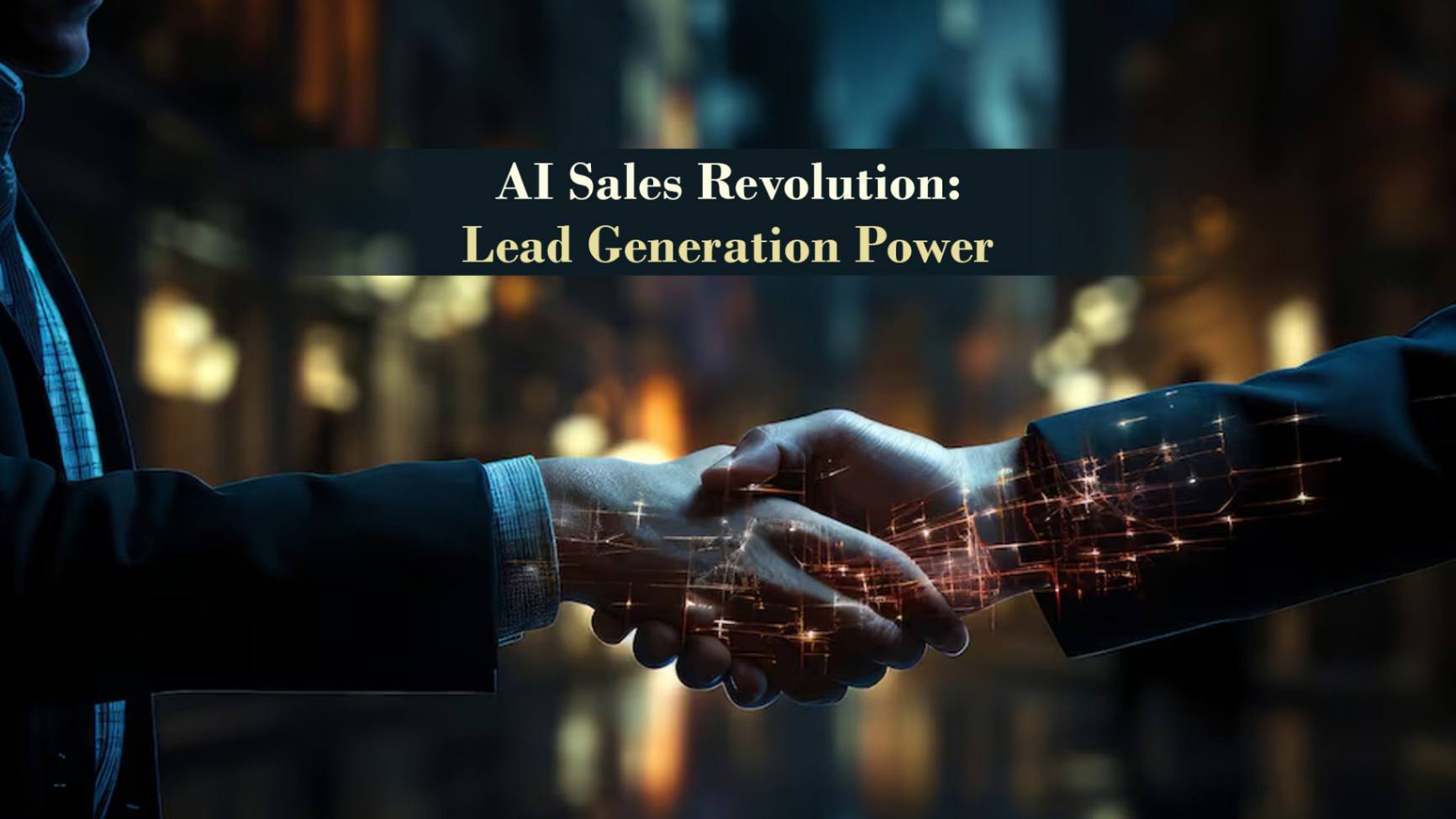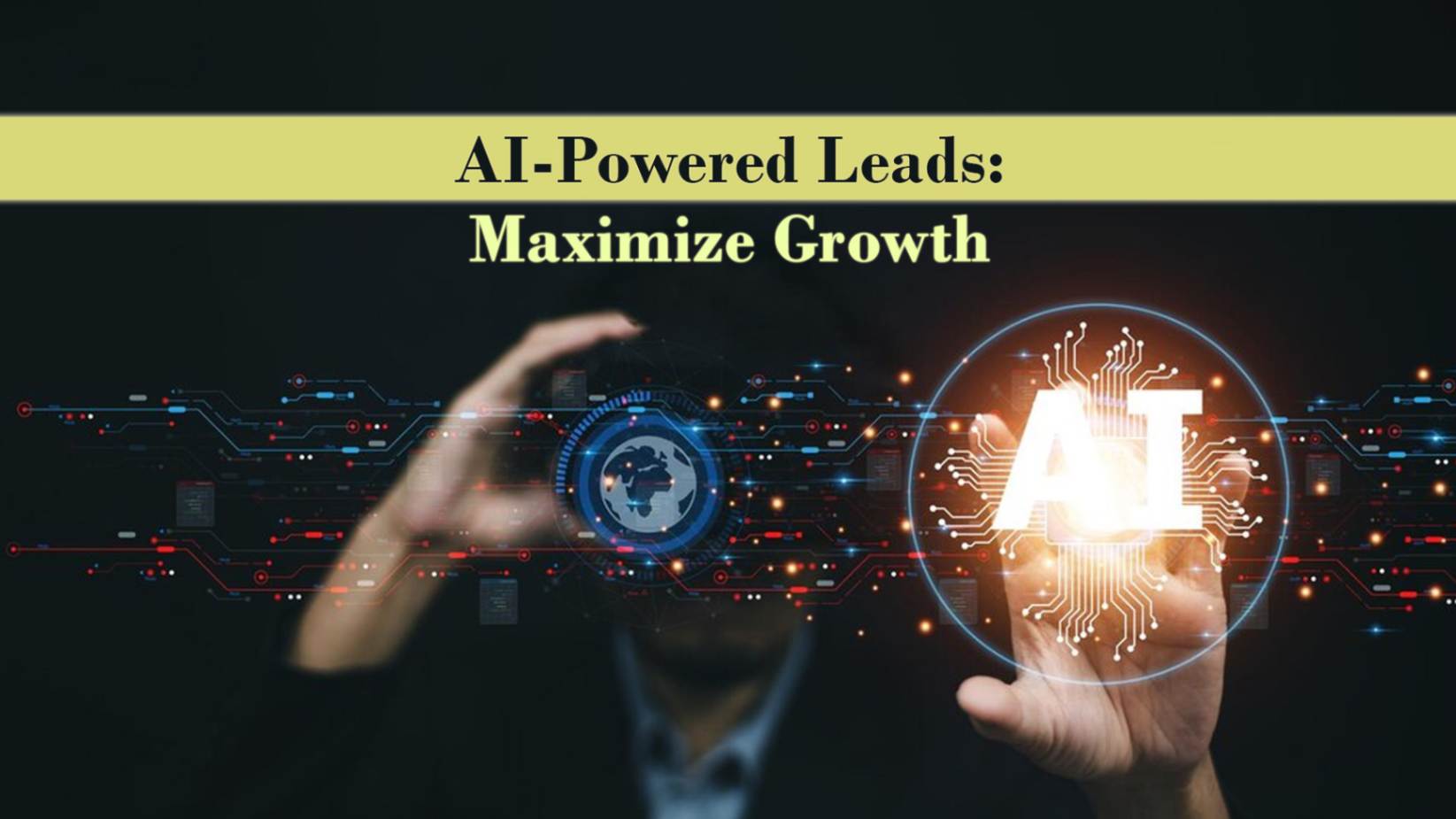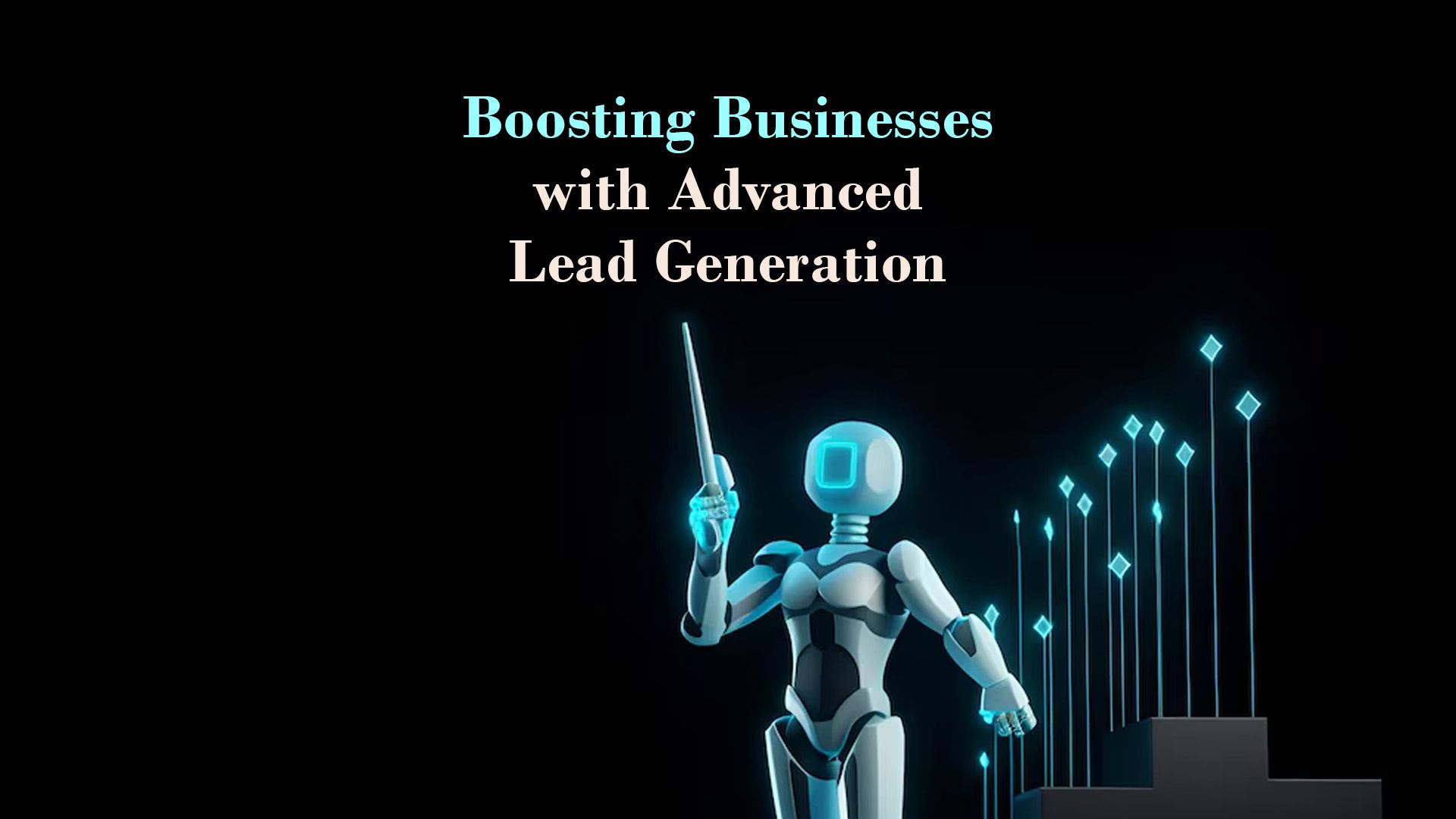In today’s rapidly evolving business landscape, lead generation stands as a cornerstone for sales success. As technology continues to advance, Artificial Intelligence (AI) has emerged as a powerful force reshaping how businesses approach lead generation. This article delves into the revolutionary impact of AI on lead generation strategies, exploring its benefits, challenges, and future trends.
Introduction to Lead Generation
Lead generation serves as the lifeblood of sales organizations, driving revenue growth by identifying and converting potential customers into leads. Traditionally, lead generation relied on manual processes such as cold calling and email marketing. However, with the advent of AI, businesses can now leverage data-driven insights and automation to streamline the lead generation process.
The Importance of Lead Generation in Sales
Lead generation plays a pivotal role in sales success, providing a consistent influx of prospects to fuel the sales pipeline. Without effective lead generation strategies, businesses struggle to sustain growth and profitability in today’s competitive marketplace.
Continuous Flow of Prospects:
Lead generation ensures a steady influx of potential customers into the sales pipeline, providing sales teams with a consistent pool of prospects to engage with and convert into paying customers.
Sustainability of Growth
Effective lead generation strategies are essential for sustaining business growth over time. Without a reliable source of new leads, businesses may struggle to maintain momentum and expand their customer base.
Enhanced Profitability
By consistently generating new leads, businesses can increase their sales opportunities and revenue potential. A robust lead generation process ultimately leads to higher profitability as more leads are converted into customers.
Competitive Advantage
In today’s competitive marketplace, lead generation is essential for businesses to differentiate themselves and stay ahead of the competition. By actively seeking out and engaging with potential customers, businesses can carve out a unique position in the market.
Relationship Building
Lead generation is not just about acquiring new customers; it’s also about building relationships with them. By engaging with prospects early in the sales process and providing value through personalized interactions, businesses can establish trust and rapport, making it more likely for leads to convert into loyal customers.
Efficiency and Effectiveness
A well-executed lead generation strategy allows sales teams to focus their efforts on qualified leads with the highest potential for conversion. This improves the efficiency and effectiveness of the sales process, as resources are allocated to prospects most likely to result in sales.
Benefits of AI in Lead Generation
The integration of AI into lead generation brings forth numerous benefits, including enhanced lead scoring accuracy, personalized marketing campaigns, and predictive analytics-driven insights. By leveraging AI, businesses can optimize their sales efforts, reduce manual labor, and focus resources on leads with the highest potential.
Enhanced Lead Scoring Accuracy:
AI algorithms analyze vast amounts of data to accurately prioritize leads based on their likelihood to convert. This results in more precise lead scoring, enabling sales teams to focus their efforts on prospects with the highest potential, ultimately leading to higher conversion rates.
Personalized Marketing Campaigns:
AI-powered tools enable businesses to create personalized marketing campaigns tailored to the specific preferences and behaviors of individual leads. By delivering targeted content and offers, businesses can enhance engagement and build stronger relationships with their audience, leading to higher conversion rates and customer satisfaction.
Predictive Analytics-Driven Insights:
AI-driven predictive analytics provide valuable insights into customer behavior, market trends, and future opportunities. By leveraging these insights, businesses can make informed decisions, anticipate customer needs, and proactively target high-potential leads, resulting in improved sales performance and revenue growth.
Optimized Sales Efforts:
AI automates repetitive tasks and processes, allowing sales teams to focus their time and resources on high-value activities such as lead nurturing and relationship building. This increases productivity and efficiency, enabling businesses to achieve better results with fewer resources.
Reduction of Manual Labor:
By automating manual tasks such as data entry, lead qualification, and follow-up communications, AI reduces the need for manual labor, freeing up valuable time and resources for more strategic activities. This not only improves operational efficiency but also allows sales teams to focus on activities that drive revenue growth and business success.
Case Studies: Successful Implementation of AI in Lead Generation
Numerous companies have successfully implemented AI in their lead generation efforts, achieving significant improvements in conversion rates and revenue growth. From e-commerce giants to B2B enterprises, these case studies highlight the tangible benefits of AI-driven lead generation strategies in real-world scenarios.
In this section, we delve into real-world case studies showcasing the successful implementation of AI in lead generation. These case studies demonstrate how various companies, ranging from e-commerce giants to B2B enterprises, have leveraged AI-driven strategies to achieve remarkable results. By highlighting tangible benefits such as improvements in conversion rates and revenue growth, these case studies provide valuable insights into the effectiveness of AI-powered lead generation in practical business scenarios.
Future Trends in AI-Powered Lead Generation
Looking ahead, the future of AI in lead generation promises even greater advancements and opportunities. As AI technologies continue to evolve, we can expect to see innovations in areas such as natural language processing, predictive modeling, and customer relationship management, enabling businesses to stay ahead of the competition and drive sustainable growth.
Advancements in Natural Language Processing (NLP):
Future developments in NLP technology will enable AI systems to better understand and interpret human language, allowing for more sophisticated interactions with leads through chatbots, emails, and other communication channels.
Enhanced Predictive Modeling:
AI algorithms will become increasingly adept at predictive modeling, enabling businesses to anticipate customer behavior and preferences with greater accuracy. This will facilitate more targeted and personalized lead generation strategies, resulting in higher conversion rates and improved ROI.
Integration of AI in Customer Relationship Management (CRM):
The integration of AI into CRM systems will revolutionize how businesses manage and nurture leads. AI-powered CRM platforms will automate routine tasks, provide actionable insights, and enable predictive lead scoring, empowering sales teams to prioritize leads and focus on high-value opportunities.
Personalized Content Generation:
AI-driven content generation tools will enable businesses to create highly personalized and engaging content tailored to the specific needs and interests of individual leads. This personalized approach will drive higher engagement and conversion rates by delivering relevant and timely content to prospects throughout the buyer’s journey.
Expansion of AI in Lead Qualification and Segmentation:
AI-powered lead qualification and segmentation tools will become more sophisticated, enabling businesses to accurately identify and categorize leads based on their readiness to purchase, level of engagement, and other relevant criteria. This will streamline the lead qualification process, allowing sales teams to prioritize their efforts and focus on leads with the highest potential for conversion.
Conclusion
In conclusion, AI is revolutionizing Lead Generation by empowering businesses to identify, engage, and convert prospects more efficiently than ever before. By harnessing the power of AI-driven insights and automation, sales teams can optimize their workflows, increase productivity, and ultimately drive better results.
Additionally, the emergence of precallAI services has further revolutionized the lead generation process. These services leverage AI algorithms to analyze customer data, social media profiles, and other relevant information to provide sales representatives with valuable insights before they even make a call. Armed with this knowledge, sales teams can engage with prospects in a more personalized and effective manner, increasing the likelihood of success.





